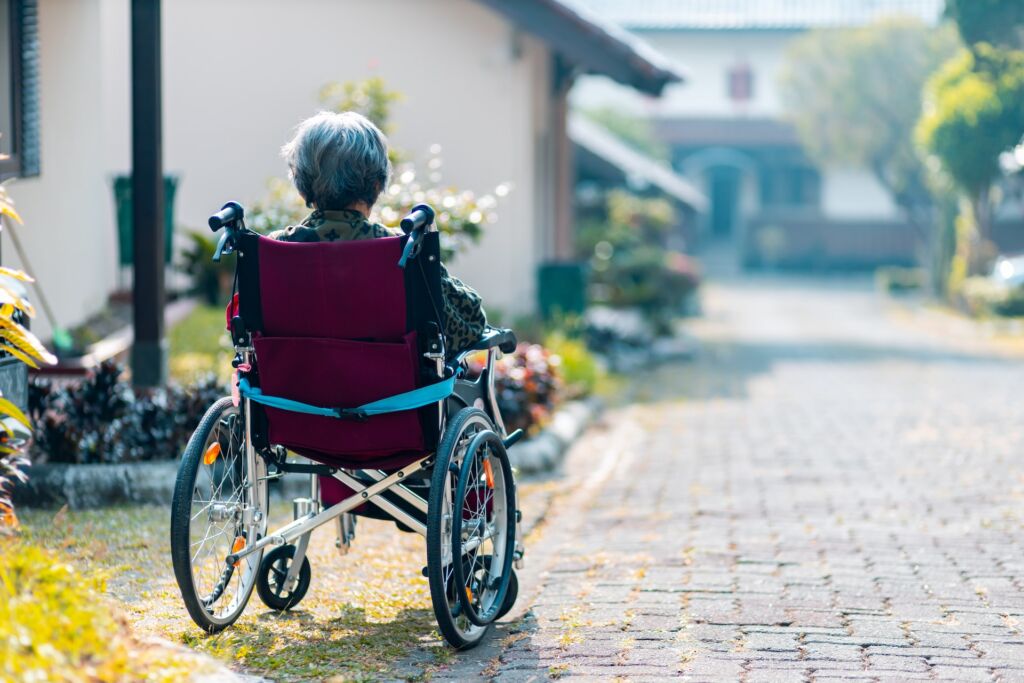Early onset dementia is far more common than most people realize, especially for those with genetic markers making it more likely that they will develop dementia or Alzheimer’s. Around 200,000 people in the United States under age sixty-five struggle with Alzheimer’s or early onset dementia.
If you have a loved one that is beginning to show the signs of early onset dementia, you can reach out to a medical professional, therapist at Irvine Christian Counseling for help today.
Nine signs of early onset dementia.
 Only a medical professional can determine early onset dementia or Alzheimer’s. The physician will order physical and cognitive assessments, lab work and request a complete medical history. The risk for dementia rises if an immediate family member also has the disease. The person must have problems in other areas besides memory that affect everyday life. These areas include language, communication, concentration, and problem-solving.
Only a medical professional can determine early onset dementia or Alzheimer’s. The physician will order physical and cognitive assessments, lab work and request a complete medical history. The risk for dementia rises if an immediate family member also has the disease. The person must have problems in other areas besides memory that affect everyday life. These areas include language, communication, concentration, and problem-solving.
Look over the following signs of early onset dementia:
Memory problems – The first effect of early onset dementia is the inability to recall things as well as in the past. The initial reason the person believes is due to the aging process. However, these memory problems will progress faster than typical aging. Recent events and conversations may be hard to recall or are entirely missing from their memory.
Increasing confusion – Confusion can set in when the person does not remember why they walked into a room or where they live. Familiar places such as home may look strange to them. They may forget what day or month it is and become confused about specific events in their day. They may forget and become confused and agitated when meeting new people but cannot recall their names or faces later.
Changes in personality – Personality and mood changes are expected with early onset dementia. Mood swings and irritability may seem to come out of nowhere. The sufferer may become angry and frustrated when the familiar routine suddenly changes. People with dementia who were once shy and docile may suddenly show extroverted and outgoing behaviors.
 Depression – Depression, apathy, and emotional numbness are signs of early onset dementia. As the disease progresses, the patient may no longer want to spend time with family or friends. They may lose interest in their favorite hobbies or refuse to attend events. This listlessness and isolation can lead to significant depression.
Depression – Depression, apathy, and emotional numbness are signs of early onset dementia. As the disease progresses, the patient may no longer want to spend time with family or friends. They may lose interest in their favorite hobbies or refuse to attend events. This listlessness and isolation can lead to significant depression.
Unable to do everyday tasks – As dementia progresses, more complex tasks are challenging. Balancing a checkbook, managing finances, and dealing with insurance claims or tax paperwork may become puzzling to someone with dementia. As more confusion sets in, they forget how to make specific recipes or operate certain small appliances or yardwork machinery.
Problems with language – Forgetting words or believing words sound unfamiliar is a frightening symptom of dementia. The sufferer may search for the correct terms to express their feelings; thus, their speech may slow. A speech pathologist can often help the sufferer in the early stages to strengthen cognitive ability.
Displaying poor spatial skills – Judging distances and following directions are tough. The patient may quickly become lost and unable to find their way home because their surroundings are no longer familiar. They might become confused when asked to do something with more than a few steps or have trouble learning new things. The risk for car accidents increases when drivers with early onset dementia cannot judge the distance between themselves and oncoming cars.
Losing things – The patient may often lose things like keys, glasses, debit cards, wallet, or medications. They may be uncertain as to why they walked into a room. They might store items in places they do not belong, like finding the house keys in the refrigerator.
Inability to concentrate – As the brain’s hippocampus region is affected by early onset dementia, the ability to concentrate or focus on tasks wanes. Keeping a train of thought becomes challenging, and learning something new can be difficult.
Do several of these signs sound familiar? If so, contact your primary care physician today.
Lifestyle habits to decrease your risk.
 Many factors contribute to early onset dementia, but certain lifestyle habits can increase your risk. Speak to a counselor today if you are concerned about the signs of early onset dementia. The following suggestions are realistic, and most of them you can implement starting today.
Many factors contribute to early onset dementia, but certain lifestyle habits can increase your risk. Speak to a counselor today if you are concerned about the signs of early onset dementia. The following suggestions are realistic, and most of them you can implement starting today.
Eat nutritious foods. Chronic inflammation can increase your risk for dementia. Focus on consuming whole grains, fruits, vegetables, beans, and healthy fats. Avoid added sugars and foods that dramatically increase your blood sugar levels, like white bread, white flour, and white potatoes.
Avoid alcohol and substance abuse. The overconsumption of alcohol and the abuse of illegal drugs or prescription medications can result in cognitive impairment. This can lead to a higher risk of developing early onset dementia. Speak with a counselor today if you have an addiction to alcohol or drugs.
Make exercise part of your weekly routine. Exercise is a great way to stimulate the brain and slow the effects of dementia. Set a goal for at least 150 minutes per week of exercise. If you have not worked out for a while, speak with your primary care doctor before starting a routine. When you do start, set a low goal at first. Perhaps try just two days a week, then move to three, and eventually, work up to five days a week of moderate-intensity exercise.
Challenge your mind. Just like physical exercise can stimulate your brain, so can mental exercise. Mental training can have a long-lasting effect. Consider spending a little time every day on either learning something new or working on a puzzle.
If there is something you already love to do, can you add another layer to it? For example, what new piece can you design and build if you are a carpenter? If you love to write stories, can you outline and write in a new genre? Force your brain to create new pathways and activate old ones by challenging it.
 Socialize with others. There is something about stepping out of the isolation that our brains love. The connectedness of social engagement with others can help reduce our risk for dementia and lift our spirits. Ask a friend to lunch, volunteer at church, join a group at your local community center or participate in a nearby club.
Socialize with others. There is something about stepping out of the isolation that our brains love. The connectedness of social engagement with others can help reduce our risk for dementia and lift our spirits. Ask a friend to lunch, volunteer at church, join a group at your local community center or participate in a nearby club.
Participate in all screenings and medical appointments. High blood pressure is referred to as “the silent killer” because many people with hypertension have no symptoms. However, researchers are finding a correlation between heart and brain health.
Your doctor should monitor your blood pressure every visit to ensure that the systolic and diastolic readings are within healthy guidelines. You can also purchase an at-home monitor to keep a record for your physician. Make sure you keep up on all medical appointments and health screenings.
Adopt a nightly routine. Insufficient and lack of restorative sleep can worsen early onset dementia symptoms. Avoid blue lights from computers and devices before bedtime as it interferes with the natural sleep cycle. Consider creating a bedtime ritual. For example, after cleaning up from dinner, take a hot bath, read a book, spend time stretching, or pray and read a devotional before bed. Not only will these tasks signal to your brain that it is bedtime, but they will also lower stress.
You cannot control every aspect of your health; however, be vigilant about what you can control. Give your brain (and your body) and fighting chance to prevent or prolong dementia.
Early onset dementia not only takes a physical toll but can also take a psychological one, bringing on depression, anxiety, apathy, or irritability. Reach out to one of our counselors at Irvine Christian Counseling today if your loved one suffers from the effects of early onset dementia. We have therapists specializing in aging and senior issues, dementia, Alzheimer’s, and other mental health conditions.
“ER”, Courtesy of Getty Images, Unsplash.com, Unsplash+ License; “Lament”, Courtesy of Cristian Newman, Unsplash.com, CC0 License; “Sitting in the Sun”, Courtesy of Steven HWG, Unsplash.com, CC0 License; “Remembering Grandma”, Courtesy of Tim Doerfler, Unsplash.com, CC0 License
-
Kate Motaung: Curator
Kate Motaung is the Senior Writer, Editor, and Content Manager for a multi-state company. She is the author of several books including Letters to Grief, 101 Prayers for Comfort in Difficult Times, and A Place to Land: A Story of Longing and Belonging...
DISCLAIMER: THIS ARTICLE DOES NOT PROVIDE MEDICAL ADVICE
Articles are intended for informational purposes only and do not constitute medical advice; the Content is not intended to be a substitute for professional medical advice, diagnosis, or treatment. All opinions expressed by authors and quoted sources are their own and do not necessarily reflect the opinions of the editors, publishers or editorial boards of Irvine Christian Counseling. This website does not recommend or endorse any specific tests, physicians, products, procedures, opinions, or other information that may be mentioned on the Site. Reliance on any information provided by this website is solely at your own risk.





